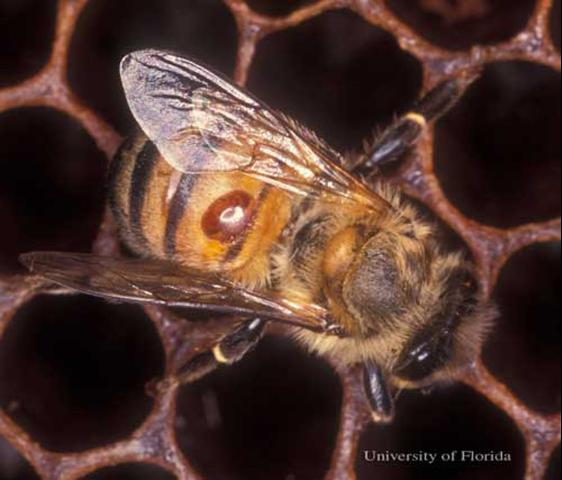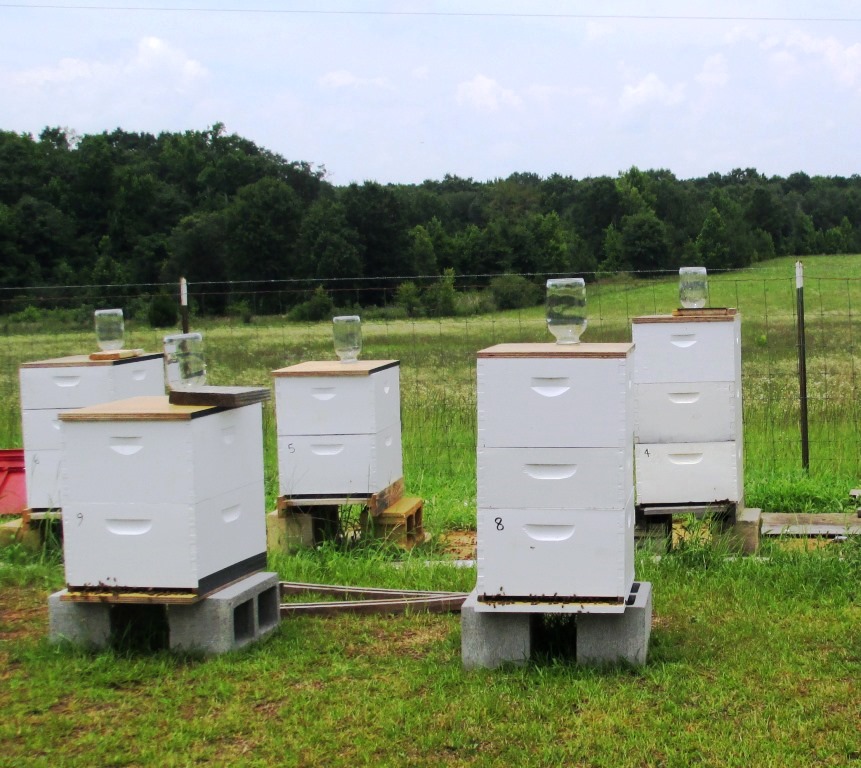by Roy Carter | May 29, 2015
If life were simple, one of its advantages would be that an apiary could be established and the beehives would never have to be moved. But life isn’t simple, and beekeepers need to move their bees for various reasons. They may need to be moved to make a special honey...
by Roy Carter | Dec 19, 2014
Cross pollination is carried on mainly by insects, especially by honeybees, bumblebees, and to a very limited extent, other bee-like insects. The honeybee, of all insects, is most peculiarly adapted to the task of cross pollination. Most insects are dormant during...
by Roy Carter | Aug 1, 2014
Over everything the beekeeper does hangs the honey producer’s main objective: maximizing bee populations in time for major nectar flows. The next major nectar flows in north Florida will be spring; but beekeepers need to start working now in order to be ready for them...

by Roy Carter | Mar 14, 2014
The varroa mite, Varroa destructor is the world’s most devastating pest of Western honey bees, Apis mellifera. Although the varroa complex includes multiple species, Varroa destructor is the species responsible or the vast majority of the damage attributed to mites...

by Roy Carter | Nov 1, 2013
Normally a well-managed colony will require little supplemental feeding, but such feeding, when it is necessary, may determine the ultimate survival of the colony. Ensuring that bees always have an adequate food supply is a form of insurance, and it is generally a...


